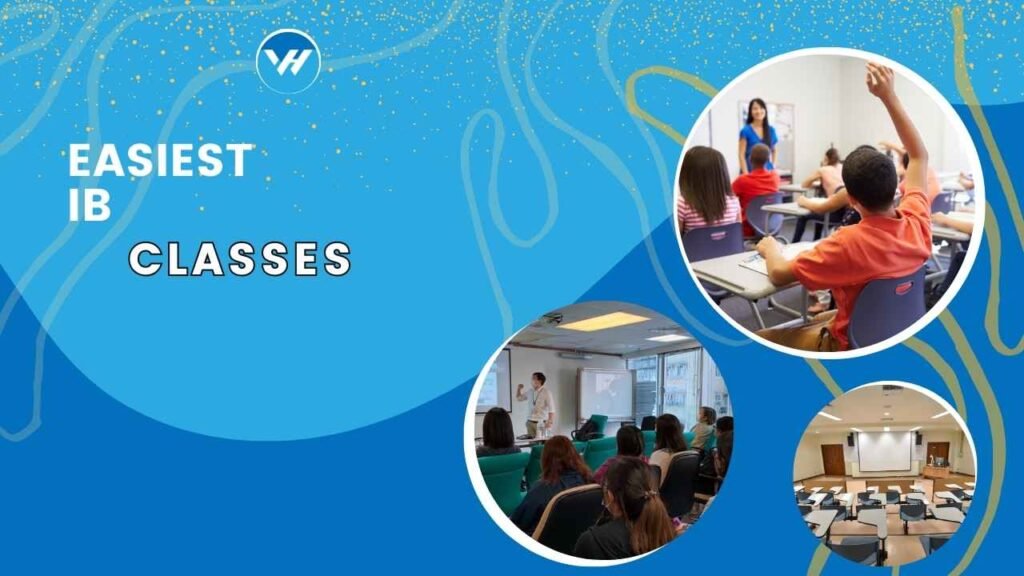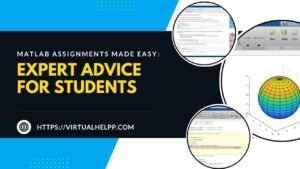The International Baccalaureate (IB) Diploma is renowned for its rigorous academic standards and comprehensive curriculum. While the program is challenging, selecting the right combination of subjects can significantly ease the journey. In this guide, we’ll explore some of the easiest IB classes based on various factors and provide tips on how to excel in them.

Table of Contents
ToggleUnderstanding the IB Program
What is the IB Program?
The IB program is an internationally recognized educational program that offers high school students a challenging curriculum designed to prepare them for university and beyond. It emphasizes critical thinking, intercultural understanding, and exposure to a variety of points of view.
Structure and Components of the IB Diploma
The IB diploma includes six subject groups, an Extended Essay, Theory of Knowledge (TOK), and Creativity, Activity, Service (CAS) requirements. Students must choose one subject from each of the first five groups and either an arts subject from Group 6 or a second subject from Groups 1-5.
The Role of Subject Choices in the IB Program
Choosing the right subjects can play a crucial role in managing the overall difficulty of the IB program. Some subjects are inherently easier due to the nature of their content, the grading criteria, or the availability of resources and support.
Factors Influencing IB Subject Difficulty
Quality of Tuition Available
The availability and quality of tuition can greatly influence how difficult a subject feels. Access to experienced teachers and supplementary tutoring can make a significant difference.
Relevance to Future Career Goals
Choosing subjects that align with your future career aspirations can motivate you to perform better. Subjects that are relevant to your interests are often perceived as easier.
Personal Strengths and Interests
Your natural abilities and interests should guide your subject choices. Subjects that play to your strengths will likely feel easier and more enjoyable.
Statistical Analysis of Subject Difficulty
Statistical trends, such as the percentage of students achieving top grades, can provide insights into which subjects are easier. However, it’s important to consider that these trends can be influenced by various factors.
Group 1: Studies in Language and Literature
Overview of Group 1 Subjects
Group 1 includes language and literature courses in the student’s first language. These subjects aim to develop literary analysis skills and an appreciation of literature.
Easiest Group 1 Subjects Based on Statistical Trends
English A1 is generally considered one of the easier Group 1 subjects, especially for native speakers. Spanish A1 can be more challenging due to the higher language proficiency required.
Tips for Excelling in Group 1 Subjects
- Regular Reading: Read widely and regularly to enhance your understanding and appreciation of literature.
- Practice Analysis: Practice literary analysis and essay writing to improve your skills.
- Seek Feedback: Get feedback from teachers and peers to refine your essays and analyses.
Group 2: Language Acquisition
Overview of Group 2 Subjects
Group 2 includes language acquisition courses for second languages. These subjects focus on developing communication skills in a new language.
Easiest Group 2 Subjects Based on Statistical Trends
Mandarin B and Spanish B are often seen as easier due to the higher percentage of students achieving top grades, especially those with a background in these languages.
Tips for Excelling in Group 2 Subjects
- Daily Practice: Practice the language daily to improve fluency.
- Engage with Native Speakers: Interact with native speakers to enhance your language skills.
- Use Multimedia: Use movies, music, and online resources to make learning fun and engaging.
Group 3: Individuals and Societies
Overview of Group 3 Subjects
Group 3 includes subjects related to social sciences, such as history, economics, and geography. These subjects aim to develop an understanding of human behavior and societal issues.
Easiest Group 3 Subjects Based on Statistical Trends
Economics is often considered one of the easier Group 3 subjects due to its higher average grades and the availability of resources.
Tips for Excelling in Group 3 Subjects
- Understand Concepts: Focus on understanding key concepts rather than rote memorization.
- Apply Theories: Apply theoretical knowledge to real-world examples to deepen your understanding.
- Stay Updated: Keep up with current events to relate your studies to contemporary issues.
Group 4: Sciences
Overview of Group 4 Subjects
Group 4 includes experimental sciences such as biology, chemistry, and physics. These subjects aim to develop scientific knowledge and practical skills.
Easiest Group 4 Subjects Based on Statistical Trends
Physics is considered the easiest subject to score a 7 in, especially at the Higher Level (HL), due to its higher percentage of top grades.
Tips for Excelling in Group 4 Subjects
- Regular Practice: Practice problems regularly to reinforce your understanding.
- Lab Work: Engage actively in lab work to develop practical skills.
- Use Visual Aids: Use diagrams and visual aids to grasp complex concepts.
Group 5: Mathematics
Overview of Group 5 Subjects
Group 5 includes mathematics courses, which are essential for many university programs and careers. The courses range from basic to advanced levels.
Easiest Group 5 Subjects Based on Statistical Trends
Mathematical Studies SL is generally considered easier than Mathematics SL or HL, making it a popular choice for students not pursuing STEM fields.
Tips for Excelling in Group 5 Subjects
- Practice Regularly: Regular practice is key to mastering mathematical concepts.
- Seek Help: Don’t hesitate to seek help from teachers or tutors if you’re struggling.
- Use Online Resources: Utilize online resources and tutorials for additional practice.
Group 6: The Arts
Overview of Group 6 Subjects
Group 6 includes arts subjects such as visual arts, music, and theatre. Students can also choose another subject from Groups 1-5 instead.
Easiest Group 6 Subjects Based on Statistical Trends
Music and visual arts are often considered easier due to the higher percentage of students achieving top grades.
Tips for Excelling in Group 6 Subjects
- Practice Creativity: Engage in creative practice regularly to refine your skills.
- Showcase Your Work: Take every opportunity to showcase your work and get feedback.
- Stay Inspired: Stay inspired by exploring various art forms and artists.
Extended Essay and Theory of Knowledge
Importance of the Extended Essay and Theory of Knowledge
The Extended Essay (EE) and Theory of Knowledge (TOK) are core components of the IB program. They develop critical thinking and research skills.
Choosing Subjects for the Extended Essay
Choose a subject for your EE that genuinely interests you and aligns with your strengths. This will make the research and writing process more enjoyable.
Tips for Excelling in the Extended Essay and Theory of Knowledge
- Plan Ahead: Start early and plan your work to avoid last-minute stress.
- Seek Guidance: Regularly consult your supervisor for guidance and feedback.
- Engage in Discussions: Participate in TOK discussions to broaden your perspective.
Balancing Subject Difficulty and Interest
Finding the Right Balance Between Difficulty and Interest
Choosing subjects that strike a balance between difficulty and your interests is crucial. Enjoying your subjects can make even the challenging ones feel more manageable.
Importance of Enjoying the Subjects You Choose
When you enjoy what you’re studying, you’re more likely to engage deeply and perform better. Passion and interest can turn a difficult subject into a rewarding experience.
Long-Term Benefits of Balanced Subject Choices
Balanced subject choices can lead to better overall performance, reduced stress, and a more enjoyable IB experience. They also help in developing a well-rounded skill set for future endeavors.
Strategies for Success in IB Classes
Effective Study Habits
Develop effective study habits, such as regular revision, organized notes, and time management, to stay on top of your coursework.
Utilizing Available Resources
Make full use of available resources, including textbooks, online materials, and study groups, to enhance your understanding.
Seeking Help from Tutors and Online Platforms Like Virtual Help
Don’t hesitate to seek help from tutors and online platforms like Virtual Help, which can provide additional support and guidance.
Virtual Help: Your Companion in IB Success
Overview of Virtual Help
Virtual Help is an app-based service that connects students with tutors and provides assignment help across various subjects.
How Virtual Help Can Assist with IB Subjects
Virtual Help offers personalized tutoring and resources tailored to your needs, helping you excel in your IB subjects.
Conclusion
Choosing the right IB subjects can significantly ease your academic journey. By considering your strengths, interests, and available support, you can make informed decisions that lead to success. Virtual Help can be a valuable resource in this journey, providing the necessary support to excel in your IB subjects.
FAQs
1. How do I choose the easiest IB subjects for me?
Consider your strengths, interests, and available resources. Research statistical trends and seek advice from teachers and peers.
2. Can Virtual Help really improve my IB grades?
Yes, Virtual Help offers personalized tutoring and resources that can enhance your understanding and performance in IB subjects.
3. What if I find a subject too difficult after starting?
Seek help from your teachers and tutors. Consider switching to a different subject if it’s early in the program and aligns better with your strengths.
4. Are there any additional resources for IB students?
Yes, there are numerous online resources, textbooks, and study groups available to support IB students.
5. How important is it to balance subject difficulty with personal interest?
Balancing difficulty with interest is crucial for maintaining motivation and enjoyment in your studies, leading to better performance and a more fulfilling experience.





